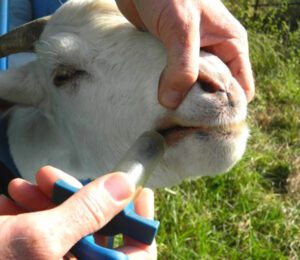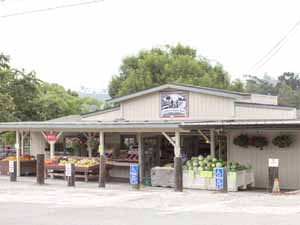Before discussing more about cooperative farming, let us clear what it is actually. Actually, ‘cooperative farming is the practice where farming operations are conducted cooperatively by the farmers’. Cooperative farming is actually a cooperative in which farmers pool their resources in certain areas of activity.
Cooperative farming is an agricultural practice conducted by individuals on their holdings jointly with certain common agencies. And these agencies form on their behalf for the collection and purchase of agricultural inputs such as equipment, seeds, fertilizers etc. and the sale of their agricultural produce.
Cooperative farming allows little farms to do what big farms can do. Such as buy inputs at bulk rates, increase volume to open new markets and lower the per-use cost of equipment. In this agricultural production system, the producers can lower costs, access required services for facilities, or generate more income.
Classification of Cooperative Farming
The cooperative farming is classified into the following types.
- Cooperative collective farming ownership and operation both collectively.
- Cooperative tenant farming ownership is collectively and operations are individual.
- Cooperative better farming ownership and operations both individual.
- Cooperative joint farming ownership is individual and the operations are collective.
Cooperative Farming Features
Cooperative farming system has numerous features. Here we are listing the top features of cooperative farming.
- Farmers don’t lose their land ownership. They retail their right to land.
- Joining of the farmers in this system is voluntary.
- The member of the cooperative pool their land, livestock and also other implements.
- Depending on the amount of land and labor performed, every member earns a share of the total production.
- The entire production operation is managed as a single unit and management is elected by all the members.

Advantages of Cooperative Farming
Cooperative farming has some advantages as compared to individual farming operation. Here we are trying to describe the top advantages of cooperative farming.
- The main advantage of cooperative production is the increase of production. You access to numerous services or tools for increasing production.
- In individual farming, a large amount of land remain unused due to small boundaries on each field. But in cooperative production, you can utilize whole land.
- Cooperative farming solves the problem of sub-division and fragmentation of holdings.
- According to some case studies, per acre production in cooperative production increases.
- The cooperative system has more men-material-money resources to increase irrigation system potential and land productivity. And members could not have been able to do it individually on their small farm.
- By pooling all the small and marginal farms into cooperative production, the farmers can reap all the advantages of large-scale farming.
- In case of purchasing seeds, fertilizers and other required supplies, you will be able to purchase them in bulk in relatively cheap price.
- Big machinery such as tractors, harvesting machines can now be purchased by the society and the agricultural operations can b managed on a more scientific basis.
- A large number of unemployed people can get a great employment source in this system.
Administrative Convenience
This is helpful for the government on the administrative point of view to collect taxes, distributing subsidies and also for introducing improved methods of production.
Creditworthiness
This can attain high creditworthiness when compared to that of individual farming. And such a large scale can attract a greater amount of finance for it’s productive activities.
Marketable Surplus
The marketable surplus of food grain and industrial raw materials can be transported and marketed on a bulk basis suitably by society and then fetch remunerative prices.
Release of Workers
Higher productivity in cooperative farming will pave the system for the release of workers from agricultural to non-agricultural operations.
Social Arguments
Cooperative farming systems are having social arguments and also political arguments in their favor. Because cooperative production system can inculcate the spirit of cooperation among the different members of the society.
Great For Increasing Income
Cooperative farming can enhance the income of the marginal farmers. This system is especially very effective for the farmers of the poor countries. Fragmentation of land is inevitable due to the ever-increasing population of humans and decreasing cultivable land. And in such conditions, cooperative production increase production and ultimately increase income.
Variants of Cooperative Farming
Cooperative farming systems are of various types. Here we are trying to describe more about these types.
Cooperative Better Farming Society: In this type, the members of the society do not cultivate their land jointly and each each farmer cultivates his/her land. Though, they co-operate with each other for pre-sowing and post-harvesting operations. They purchase required agricultural supplies on a cooperative basis, such as seeds, pesticides, machinery, fertilizers etc. And they also sell their crops jointly.
Cooperative Collective Farming Society: This type of society involves of pooling of their land by the members. And if a farmer joins this society can not withdraw his/land from society.
Cooperative Joint Farming Society: Cooperative joint society comes to existence when the members pool their land and productive assets and carry on all the pre-sowing the pooling and post-harvesting functions.
Cooperative Tenant Farming Society: In this system, the society purchases or leases land from the government or some private persons and leases out the land to it’s members. The members cultivate the land and pay the rent falling to their share, and the society.
Role of Cooperative Farming in Agricultural Development & Food Security
Fisheries, livestock, poultry ad forestry are the main source of employment and income in rural areas. All these agricultural activities play a very important role in supporting national income.
Cooperative farming offers small agricultural producers opportunities and a wide range of service. Small scale marginal farmers can secure their livelihoods and play an important role in meeting the growing demand for food. And thus cooperative production system can contribute poverty alleviation, food security and also eradicate hunger.
Farmers or members of the cooperative society can form a collective voice to advocate for their needs and access services at more affordable prices that can help them increase yields, sales and profits. Good luck!






